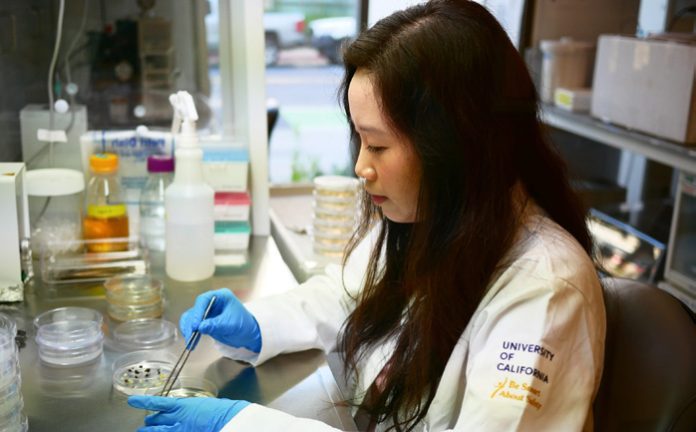strong collaboration A collaboration between three University of California (UC) schools and a leading global life sciences and diagnostics innovator, Danaher heralds a new era in the fight against rare and deadly genetic diseases, such as sickle cell disease, which primarily Innovative applications of CRISPR technology impacting Black and Hispanic populations in the United States.
Led by the Innovative Genome Institute (IGI), this joint effort brings together genetics researchers and clinical experts from UCSF, UCLA, UC Berkeley and other research institutions to accelerate Develop treatments for diseases where effective treatments were previously lacking.
 The Danaher-IGI Beacon for CRISPR Cures Center will use genome editing technology to study a variety of genetic diseases. The center will be led by IGI headquarters at UC Berkeley and will combine expertise in genetics research, clinical practice and industry resources to accelerate the development and deployment of CRISPR-based treatments. The goal is to establish new safety and efficacy standards while streamlining the path from preclinical research to clinical trials.
The Danaher-IGI Beacon for CRISPR Cures Center will use genome editing technology to study a variety of genetic diseases. The center will be led by IGI headquarters at UC Berkeley and will combine expertise in genetics research, clinical practice and industry resources to accelerate the development and deployment of CRISPR-based treatments. The goal is to establish new safety and efficacy standards while streamlining the path from preclinical research to clinical trials.
Fyodor Urnov, Ph.D., director of technology and translation at IGI, said in a press release that the unique properties of CRISPR make it ideal for developing and deploying CRISPR on-demand therapeutic platform capabilities. Danaher and IGI are in a unique position to potentially create the first CRISPR therapeutic recipe that can be used by any team looking to treat other diseases.
The center’s initial focus will be on hemophagocytic lymphohistiocytosis (HLH) and Artemis-deficient severe combined immunodeficiency (ART-SCID), two diseases characterized by deficiencies in the patient’s immune system. Traditional treatments for these diseases, such as bone marrow transplants, often fall short due to complications.
By targeting specific genetic mutations associated with these diseases, researchers hope to develop treatments that address their root causes, improve outcomes and improve the quality of life of those affected.
Using CRISPR, IGI is already making incredible progress in treating sickle cell disease in clinical trials at the Comprehensive Sickle Cell Center at UCSF Benioff Children’s Hospital in Oakland, which was established to address medical issues. Racial bias in health care. In 2021, the center received $17 million in funding to advance the use of CRISPR in sickle cell research.
The therapy has the potential to transform sickle cell disease care, said Mark Waters, MD, professor of pediatrics at the University of California, San Francisco and principal investigator of the clinical trial. If this technology is successfully used in younger patients, it could potentially prevent irreversible complications of the disease.
Since then, researchers have been testing the possibility of replacing the gene that causes sickle cell with healthy genes made from a patient’s own stem cells. Early tests came back positive, suggesting a cure for the disease is possible.
Jennifer Puck, M.D., a faculty member at the Jeffrey Model Center for Diagnostic Primary Immune Deficiencies and the Institute of Human Genetics at UC San Jose, said, “Through CRISPR, we can accelerate the development of improved therapies and benefit all those who need them. patient.Section. All patients should have a sense of urgency. Including people with rare diseases, many of whom are children.
#CRISPR #center #advances #genetic #disease #research
Image Source : www.insightintodiversity.com

